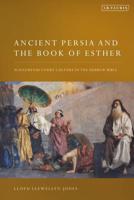Publisher's Synopsis
Excerpt from The New Testament in English: According to the Version by John Wycliffe, About A. D. 1380, and Revised by John Purvey, About A. D. 1388
In reprinting a portion of the Oxford edition of 1850, two questions presented themselves for consideration: first, as to how much should be reprinted; and, secondly, which version should be followed?
The Oxford edition is, as has been said, in 4 vols., quarto. Vol. I contains a Preface, pp. I - xxxviii, discussing the Anglo Saxon versions of Scripture, middle-english verse-translations, various versions of the Psalter, the first version of the whole Bible (due mainly to Wycliffe), Wycliffe's Commentary on the Apocalypse and on the Gospels, other works by Wycliffe having respect to the Scriptures, with an abundance of useful and valu able information of a similar kind. The List of Manuscripts examined and described follows next, pp. Xxxix - lxiv. After this comes a General Prologue to the whole Bible, of considerable length, in fifteen chapters, written by John Purvey; pp. 1 - 60. Next, a translation, in earlier and later versions, of the Prefatory Epistles of St. Jerome, in nine chapters; pp. 61-78. Next, a translation, in the two versions, of Genesis to Ruth, pp. 79 - 687 each of these books of the Bible (with the exception of Genesis) being preceded by a brief Prologue, indicative of the contents of the book to which it is prefixed. By way of example the Pro logue to Ruth (a very short one) is here given.
About the Publisher
Forgotten Books publishes hundreds of thousands of rare and classic books. Find more at www.forgottenbooks.com
This book is a reproduction of an important historical work. Forgotten Books uses state-of-the-art technology to digitally reconstruct the work, preserving the original format whilst repairing imperfections present in the aged copy. In rare cases, an imperfection in the original, such as a blemish or missing page, may be replicated in our edition. We do, however, repair the vast majority of imperfections successfully; any imperfections that remain are intentionally left to preserve the state of such historical works.










